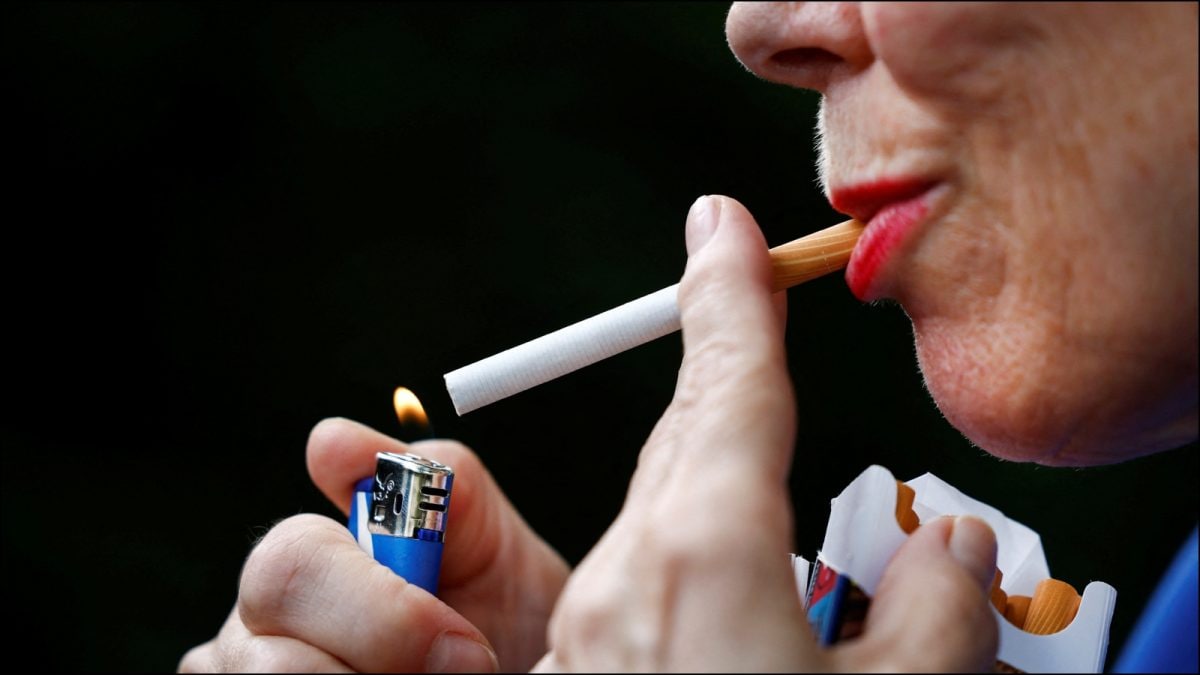Cancer Prevention Tips for Smokers: Practical Steps That Still Make a Difference

Last Updated:June 30, 2025, 17:54 IST
While quitting remains the gold standard for cancer prevention, every small change counts
While quitting is the most effective way to reduce cancer risk, smokers can still take meaningful steps to prevent cancer or detect it early
Smoking remains the single biggest avoidable cause of cancer worldwide. While quitting is the most effective way to reduce cancer risk, smokers can still take meaningful steps to prevent cancer or detect it early. It’s never too late to make positive changes—some of which can be lifesaving.
Dr. Aditya Sarin, Associate Consultant, Oncology, Sir Ganga Ram Hospital, Delhi, shares practical and impactful tips for smokers:
1. Quit Smoking: The Most Impactful Step
Quitting smoking is the single most important action a smoker can take to reduce cancer risk:
Circulation and lung function improve within weeks of quitting.
The risk of heart disease drops significantly after one year.
Within 10–15 years, lung cancer risk can be reduced by up to 50%, approaching that of non-smokers.
Aids to quit include nicotine patches or gum, prescription medications like bupropion or varenicline, and behavioral therapy.
2. Embrace Appropriate Cancer Screening
Early detection through regular screening saves lives:
Low-dose CT scans are recommended for high-risk adults (typically aged 50–80 with a significant smoking history) to detect lung cancer early.
Screening can reduce lung cancer deaths by 20–25%.
Regular oral cavity and throat exams by dentists or ENT specialists are crucial for long-term smokers, who are at higher risk of head and neck cancers.
3. Enhance Your Diet
A healthy diet plays a key role in lowering cancer risk:
Prioritize fruits and vegetables rich in antioxidants.
Choose whole grains over refined carbohydrates.
Avoid processed and red meats, which are linked to certain cancers.
Maintain a healthy weight—obesity itself is a cancer risk factor.
4. Be Physically Active
Exercise strengthens the immune system, balances hormones, and reduces inflammation:
Aim for at least 150 minutes of moderate exercise (like brisk walking) each week.
Physical activity also supports lung health and improves stamina, often reduced in smokers.
5. Restrict Alcohol Intake
Tobacco and alcohol together amplify cancer risk, especially for oral, throat, and esophageal cancers:
Cutting down or quitting alcohol significantly lowers this risk.
WHO recommends no more than two standard drinks per day for men, one for women—but less is always better.
6. Avoid Secondhand Smoke Exposure
Protect your loved ones, especially children and the elderly, from secondhand smoke:
Make homes and vehicles smoke-free zones.
Reducing passive smoke exposure not only benefits others but also serves as a powerful motivator to cut down personal smoking.
7. Debunk the ‘Damage Is Done’ Myth
Many smokers believe it’s too late to make a difference—but science says otherwise:
Studies show that significant health gains are possible even after years of smoking.
Even reducing the number of cigarettes per day while working toward quitting can improve long-term outcomes.
While quitting remains the gold standard for cancer prevention, every small change counts. Taking these proactive steps—even gradually—can significantly lower your cancer risk and improve your overall quality of life.

Swati Chaturvedi, a seasoned media and journalism aficionado with over 10 years of expertise, is not just a storyteller; she’s a weaver of wit and wisdom in the digital landscape. As a key figure in News18 Engl…Read More
Swati Chaturvedi, a seasoned media and journalism aficionado with over 10 years of expertise, is not just a storyteller; she’s a weaver of wit and wisdom in the digital landscape. As a key figure in News18 Engl… Read More
- First Published:
[title_words_as_hashtags




